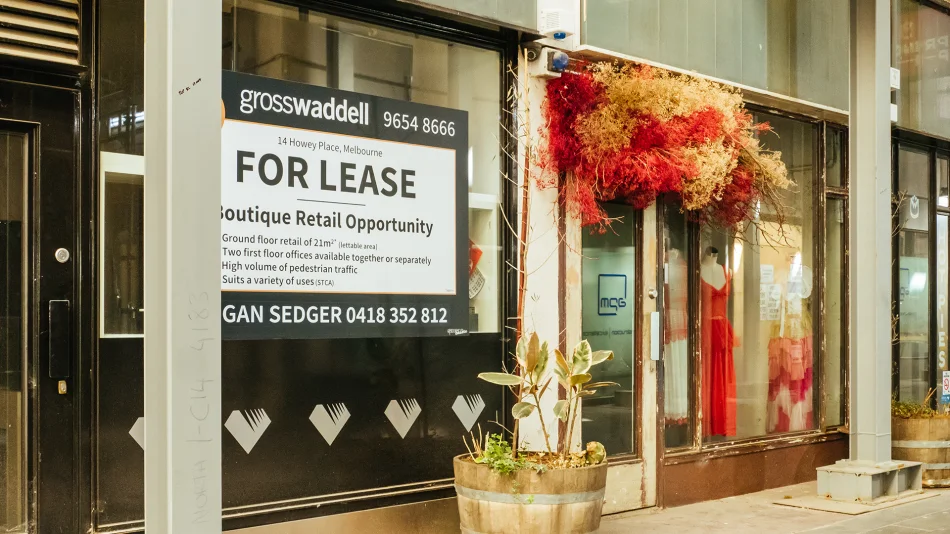The Definition of Retail
A landmark decision in CB Cold Storage Pty Ltd v IMCC Group (Australia) Pty Ltd expanded the meaning of “retail premises” under the Retail Leases Act 2003 (Vic) (“the Act”), and this interpretation continues to have significant implications in 2025.
Case Summary:
The lease in question pertained to warehouse facilities in Laverton, Victoria, which included freezer warehouses, a chiller room, loading docks, and an office area. The specified use of the premises was a “Cold and cool storage warehouse and transport facility.” The lease also stipulated that the premises could not be used for purposes other than those specified or as a retail premises.
The tenant sought to recover payments under the lease, arguing that the terms were voidable due to the Act’s provisions. The primary issue was whether the premises were retail premises as defined in s.4 of the Act – specifically, whether they were used predominantly for the retail provision of services.
The Broader Interpretation:
The Victorian Court of Appeal determined that premises used for supplying commercial services to other businesses could qualify as retail premises under the Act. The decision emphasised the “ultimate consumer test,” focusing on where and how services are provided. If a business is the final consumer of services (even if not part of the general public), the premises may fall within the scope of the Act.
This decision expanded the understanding of retail leases to include:
- Services provided to businesses as end-users.
- Premises facilitating transactions where businesses consume the service.
For example:
- A warehouse selling flour to a bakery that uses it to make bread.
- A facility supplying concrete to a builder for use in construction.
Further Amendments
The Retail Leases Amendment Act 2020 (Vic) (“Amendment Act”) created new rights and obligations to processes governed by the Act, these include:
- Disclosure Obligations:
- Landlords must provide an updated disclosure statement at least 14 days before lease renewal or extension. Failure to comply may allow tenants to withhold rent or terminate the lease without penalty.
- Essential Safety Measures:
- Landlords are now prohibited from passing on the cost of essential safety measures to tenants unless explicitly agreed upon in the lease.
- Option to renew, early Rent Reviews and cooling off periods:
- The Act now mandates that the landlord must give the tenant certain information in a written notice at least three months before the option is no longer valid of the following:
- the date by which the option to renew the lease can be exercised;
- the rent for the first 12 months of the lease;
- the availability of an early rent review;
- the availability of a cooling off period; – Tenant’s now have 14 days after exercising an option to change their mind and not continue with the next lease term.
- Any changes to the previous disclosure statement provided to the tenant.
- The Act now mandates that the landlord must give the tenant certain information in a written notice at least three months before the option is no longer valid of the following:
Implications for Landlords and Tenants in 2025:
Landlords and tenants should be mindful of these broad interpretations and updates when negotiating leases. Key considerations include:
- Landlords:
- When in doubt, treat premises as retail for lease structuring.
- Clearly outline obligations, considering the broader definition of retail under the Act.
- Tenants:
- Ensure accurate specification of permitted use.
- Be cautious of restrictive clauses and understand the implications of the Act on lease terms.
Key Differences Between Commercial and Retail Leases:
The Act provides critical protections for tenants under retail leases:
- Prohibited Charges: Landlords cannot require tenants to pay land tax or capital costs.
- Outgoings: Tenants must receive an annual estimate of outgoings before being charged.
- Safety Costs: Landlords cannot pass on essential safety measures costs unless agreed upon in writing.
These protections underscore the importance of understanding whether a lease is classified as retail under the expanded definition and the latest legislative updates.
Need Assistance?
If you have any questions about how the Act applies to your lease or require guidance, please contact Sam Ferraro or Catherine Micallef at our office. We are here to assist with navigating the complexities of the Act and ensuring your rights and obligations are clear.





